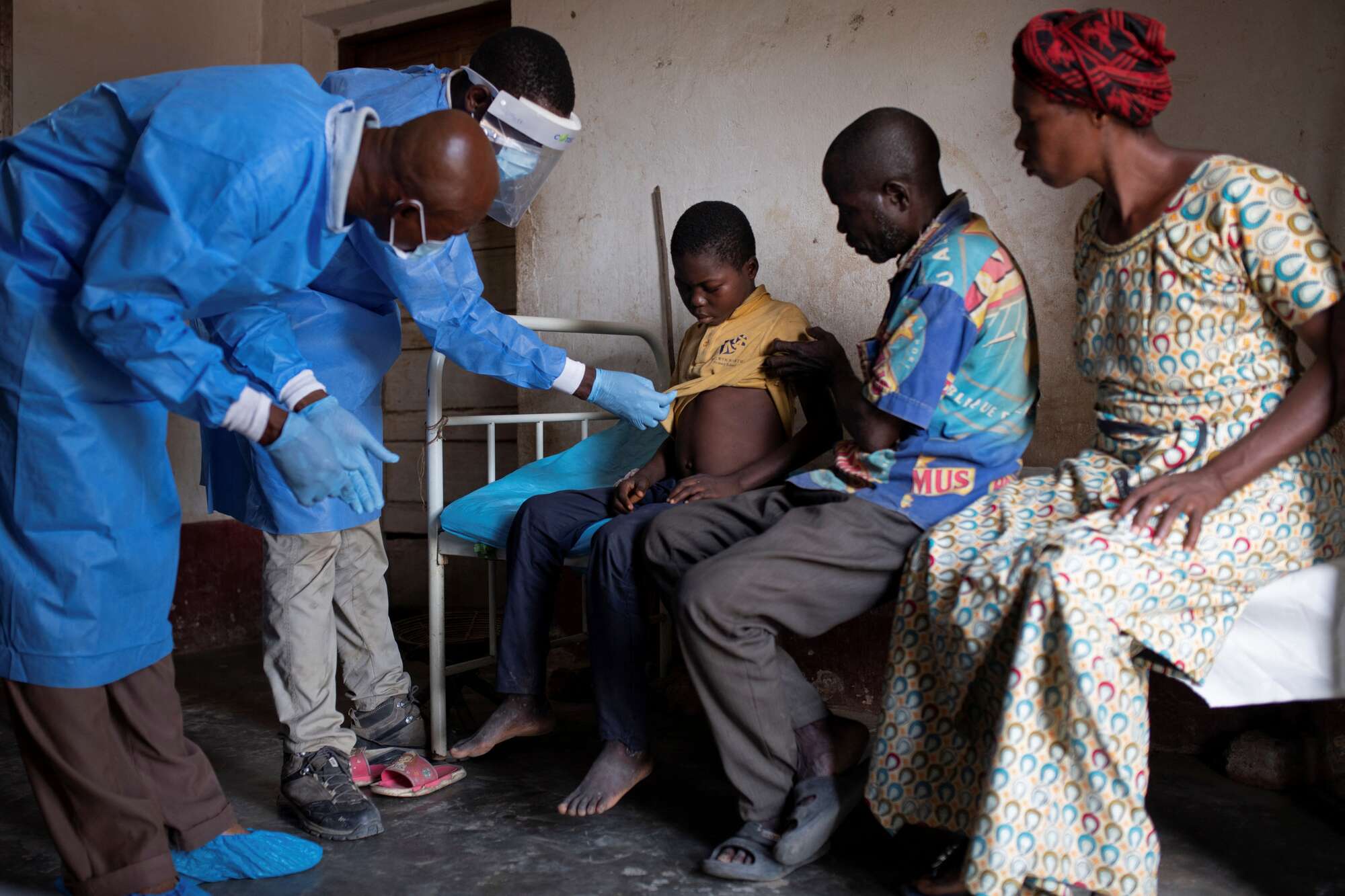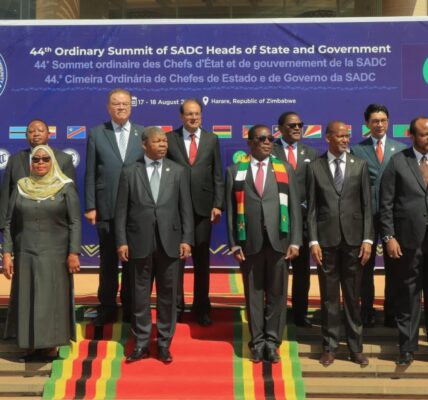
Africa needs 10 million doses of mpox vaccines to stave off a major public health crisis, National Security News has learnt. The warning comes after the World Health Organisation (WHO) declared that mpox on the African continent is now a global public health emergency and that the disease might expand further across the African continent and beyond.
There are only 200,000 doses of mpox vaccines available according to the Africa Centre for Disease Control (Africa CDC) has reported, resulting in a shortfall of 9.8 million. Meanwhile, the South African government has assured citizens that there is no need for panic regarding the outbreak of mpox in the country.
Speaking at a virtual briefing, the Director-General of Africa CDC, Dr Jean Kaseya, stated that the centre is working to quickly increase the supply of vaccines to the continent. Thirteen countries in Africa have reported a total of 2,863 cases so far, with 517 deaths primarily occurring in the Democratic Republic of Congo (DRC). Suspected cases across the continent have surged past 17,000, an increase from 7,146 cases in 2022 and 14,957 cases in 2023. The WHO said it was on the ground working with affected countries.
The emergence of a new clade of #mpox, its rapid spread in eastern #DRC, and the reporting of cases in several neighbouring countries are very worrying.
— Tedros Adhanom Ghebreyesus (@DrTedros) August 14, 2024
On top of outbreaks of other mpox clades in DRC and other countries in Africa, it’s clear that a coordinated international… pic.twitter.com/u2DSV6fitj
WHO Director-General, Tedros Adhanom Ghebreyesus said mpox cases have been spreading throughout many countries in Africa, particularly the DRC and neighbouring Burundi, Kenya, Rwanda, and Uganda. He said that the potential for further spread in Africa is concerning.
“In addition to other outbreaks of different clades of mpox in other parts of Africa, it’s clear that a coordinated international response is essential to stop these outbreaks and save lives,” Ghebreyesus said. There was transmission of the so-called clade 1b mpox virus in the DRC last year which was caused “mainly through sexual networks.” The current clade is reportedly deadlier and more easily transmissible from person to person.
Clade 1 has been circulating in the DRC for years, while clade 2 was responsible for the global outbreak in 2022 which was declared an international public health emergency. Ghebreyesus said in the past month that around 90 cases of successor clade 1b were reported in countries neighbouring the DRC that had not previously reported mpox cases.
“Stopping these outbreaks will require a tailored and comprehensive response, with communities at the centre,” he said.
The WHO chief said the UN agency is working with governments of affected countries, the Africa CDC and other partners to “understand and address the drivers of these outbreaks.”
“We are providing machines to analyse blood samples and confirm cases of mpox, and we are supporting laboratories to sequence viral samples,” he said. The WHO is also supporting case investigation and contact tracing on the ground.
“WHO has developed a regional response plan, requiring an initial $15 million to support surveillance, preparedness and response activities,” according to the WHO chief.
This response was funded by $1.45 million from the WHO Contingency Fund for Emergencies. More funds will be released in the coming days, according to Ghebreyesus and he appealed for more donor support.
Mpox vaccine manufacturers asked to increase production
Currently, two WHO-recommended and approved vaccines are being used to combat the mpox virus outbreak.
Under an Emergency Use Listing (EUL) call last week, Ghebreyesus invited manufacturers of mpox vaccines to express interest in producing them to “accelerate vaccine access for lower-income countries which have not yet issued their own national regulatory approval.” EUL will allow partners like the UN Children’s Fund (UNICEF) to gather vaccines for distribution.
“We are working with all partners to facilitate equitable access to diagnostics, vaccines, supplies for clinical care and other tools,” Ghebreyesus said.
Dr Kaseya from Africa CDC said Africa did not receive enough support from the international community between May 2022 and July 2023. When global cases began to decline, he remarked, the escalating numbers in Africa were largely ignored.
“We urge our international partners to seize this moment to act differently and collaborate closely with Africa CDC to provide the necessary support to our Member States.”
Africa has long been on the frontlines in the fight against infectious diseases, often with limited resources. The battle against mpox demands a global response. “We need your support, expertise, and solidarity. The world cannot afford to turn a blind eye to this crisis,” Dr Kaseya urged.
South African Government urges citizens not to panic about the mpox outbreak
In South Africa, where 20 mpox deaths have been reported so far, the Government has issued a notice stating there is no need for the public to panic about the mpox outbreak, following a declaration of mpox as a global health emergency by the WHO.
In a statement, the South African government said that the spread of mpox in South Africa is being managed and that the global emergency warning on mpox does not mean travel and trade restrictions. Surveillance and contract tracing will be continued around the country.
South Africans were urged to be vigilant and take the necessary measures to curb the spread of mpox by washing hands frequently with soap and water and avoiding contact with people who may be infected with the virus.
A spokesperson for the National Institute for Communicable Diseases (NICD) in South Africa informed NSN that Tecovirimate, an antiviral treatment for severe mpox cases, is available in the country through an approval process. The use of this treatment is monitored by the South African drug regulatory authority.
The NICD has developed a national strategy for the use of mpox vaccines, and measures are being implemented to ensure access to these vaccines.
Scientists hope that the declaration of mpox as a public health emergency will expedite research, funding, and the implementation of additional international public health measures.


































































































































































































































































































